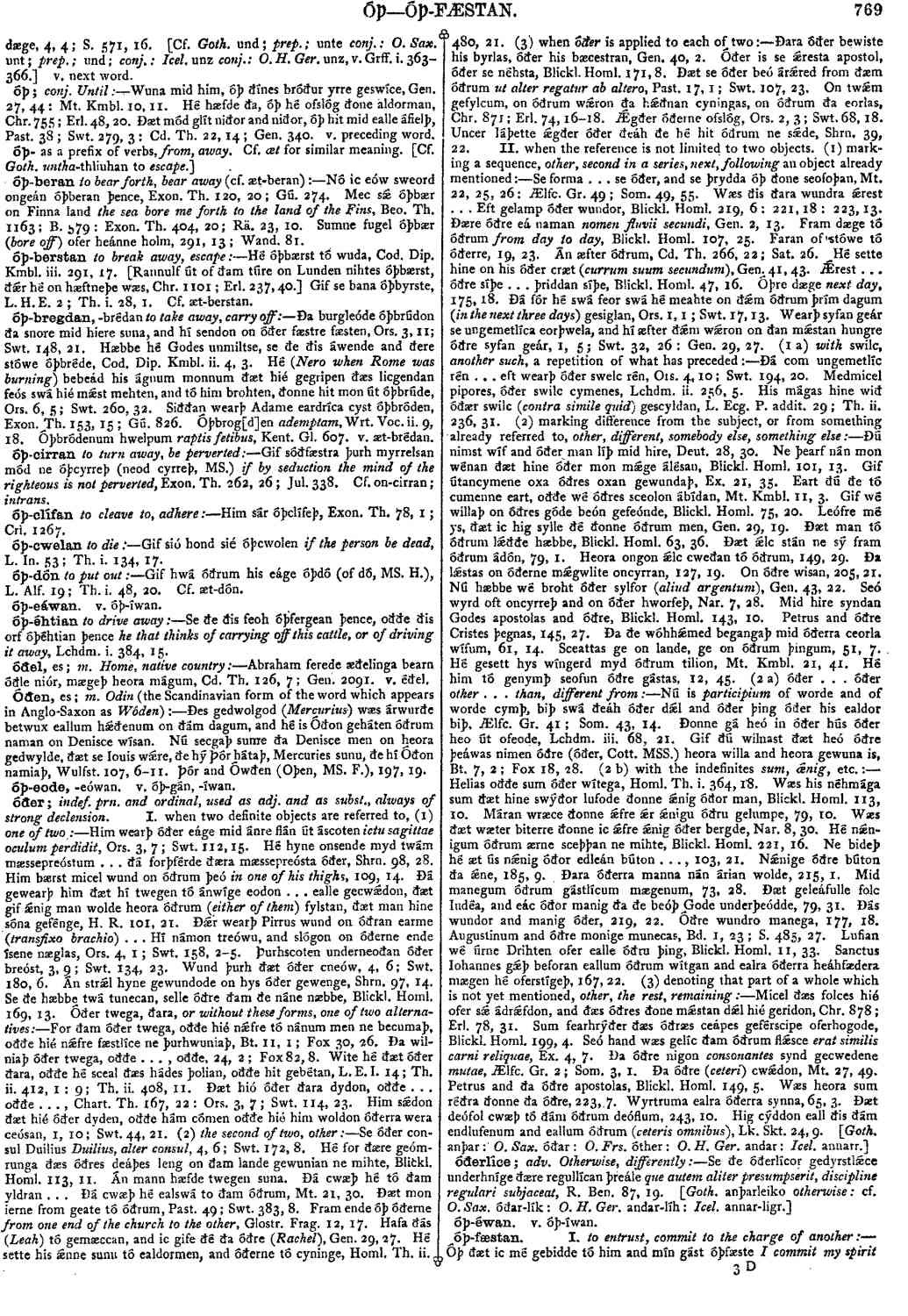óþ-fæstan
- verb [ weak ]
-
Óþ ðæt ic mé gebidde tó him and mín gást óþfæste
I commit my spirit into his hands,
- Nar. 46, 34.
-
Heó hyre mægþhád Gode óþfæste,
- 40, 16.
-
Gif hwá óþfæste his friénd feoh,
- L. Alf. 28; Th. i. 50, 29: L. Alf. pol. 20; Th. i. 74, 15.
-
Gif hwá óðrnm his unmagan óþfæste, and hé hine on ðære fæstinge forferie,
- 17; Th. i. 72, 4.
-
Se ðe wile hwilc sǽd óþ-fæstan ðám dríum furum,
- Bt. 5, 2; Fox 10, 30.
-
Ðæt hié síen tó liornunga óþfæste,
- Past. pref. ; Swt. 7, 12.
-
II. to inflict, impose (pain, punishment. Cf. æt-fæstan) :-- Ne meahton hié deáþ (Kemble has deáþe, in which case the verb belongs to I) óþfæstan
they could not inflict death (on Christ),
- Elen. Kmbl. 952 ; El. 477.
-
Drihten hæfde wítes clomma[s] feóndum óþfæsted
the Lord had imposed penal chains on the fiends,
- Cd. Th. 292, 23; Sae. 445.
Bosworth, Joseph. “óþ-fæstan.” In An Anglo-Saxon Dictionary Online, edited by Thomas Northcote Toller, Christ Sean, and Ondřej Tichy. Prague: Faculty of Arts, Charles University, 2014. https://bosworthtoller.com/25047.
Checked: 0